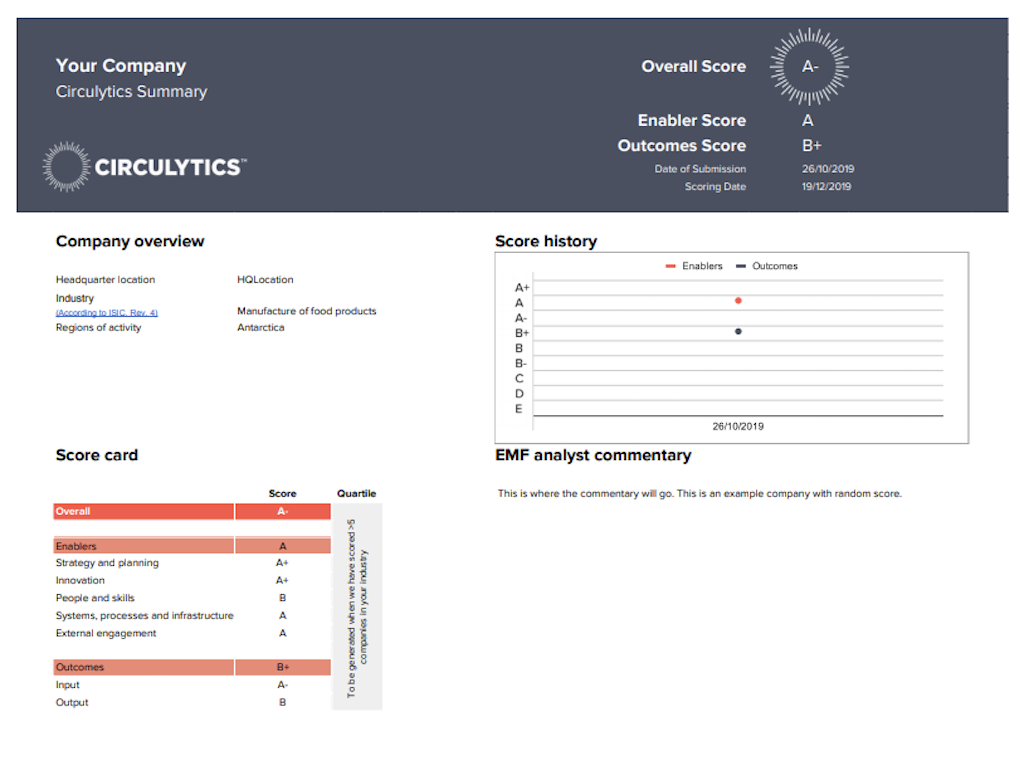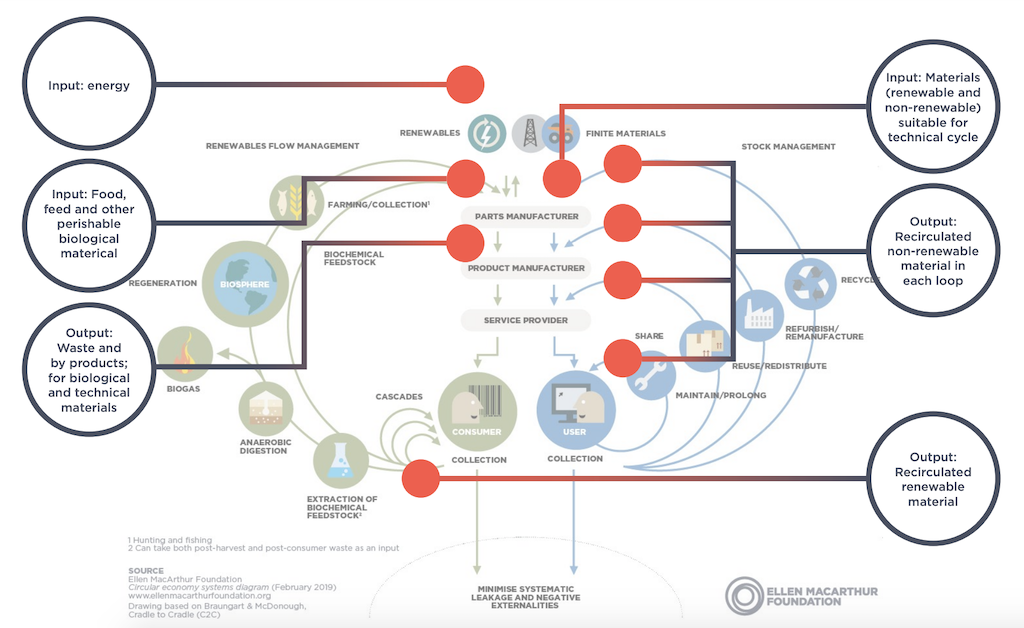3 Mins Read
Developed by the Ellen MacArthur Foundation and more than 30 collaborating companies, Circulytics is a digital measuring tool that provides companies with a comprehensive report of circularity across its entire operations. Going beyond assessing material flows and products, the platform provides data and metric analysis, tracks progress, and highlights key areas for improvement. Since its launch in January, Circulytics has already seen over 500 businesses sign up, including 121 companies with an annual revenue of more than US$1 billion.
With an aim to inform sustainability strategy, Circulytics is a free resource that uses company-level data and applies its data and metrics insights to give companies a full picture of the circularity achieved across every part of its operations, from material sourcing to manufacturing and export processes. It then collates all the data into an “overall circularity score”.
“To make the right strategic decisions, companies need the right data,” said Dame Ellen MacArthur, the founder and chair of the charity. “Circulytics uses the widest set of circular economy indicators available today and provides world-leading analysis and insight from the Ellen MacArthur Foundation.”

Beyond information on where companies lie compared to other players in the industry in terms of circularity, it also spotlights specific opportunities for companies to improve to move away from the current “take, make waste” linear economy model. For instance, a fashion brand that already uses renewable energy in production may be alerted to another part of its supply chain where full circularity has yet to be achieved, such as in the management of product end-of-life or raw material sourcing.
The indicators used in the platform were developed by United Kingdom-based charity Ellen MacArthur Foundation in collaboration with strategic partners and member companies who tested the programme in 2019.
As of June 2020, more than 500 global businesses have signed up to complete a Circulytics assessment. These include over 120 companies that have an annual revenue of more than US$1 billion, including consumer goods giant Unilever and Australian pooling solutions company Brambles.

Commenting on Unilever’s decision to participate in Circulytics’ assessment, global sustainability chief of the company Gavin Warner said: “We see the Ellen MacArthur Foundation as the thought leader on the circular economy. They are credible, they are independent, and…we trust and believe that by the time they have developed a metric that’s robust.”
Unilever and other big businesses’ adoption of the Circulytics tool comes as companies around the world have shifted their focus on sustainability, particularly as conscious consumers become more savvy differentiating between instances of greenwashing and are willing to call out complicit brands.
Demand for transparency has grown even more in the wake of the coronavirus pandemic, as it becomes increasingly clear that companies must reevaluate their business models and strategies away from the linear economy that has driven ecological destruction – the root cause of the current pandemic.
Scientists have reiterated that unless humanity puts an end to deforestation, pollution, carbon emissions, livestock farming and unsustainable production, the world is likely to see even more frequent and deadly disease outbreaks to come.
Lead image courtesy of Thomas / Adobe Stock.




